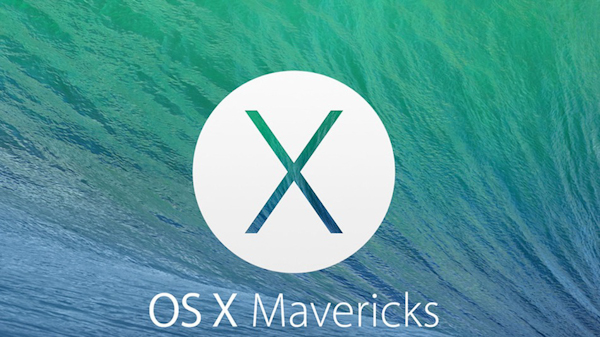Online Photo
Apple released its new OS X Mavericks software for free on Oct. 22. The system has many features of the new Mac operating system..
“OS X Mavericks adds a number of new features including the new iBooks and Maps applications,” Business Solutions Manager John Hanlon said. “It also includes enhancements to multi-monitor support, Finder tags, and notifications.”
The new operating system enhances earlier systems like Mountain Lion, Senior Timothy Sikes said apple wants to make their systems more unified across devices.
“What [Apple is] trying to do with this [operating system] is iOS 7,” Sikes said. “They are trying to make it look more like iOS 7 and make the interface as unified as possible. One thing [Apple’s Senior Vice President of Design Jonny Ive] didn’t like about the Mac operating system and the last iOS as well is something called skeuomorphism. It’s a design decision to make the things on the computer look like thinks in real life. He didn’t like that, so he went for a cleaner look that you can see in the newest iOS where everything is kind of flat and everything looks kind of minimalistic.”
Junior Bradley Garrison upgraded to the new software.
“It’s fixed some of the bugs in Mountain Lion,” Garrison said. “I’ve heard that Mountain Lion was kind of buggy and slow. I upgraded to Maverick, and it seems to be a lot faster and the battery life is improved.”
However, Oklahoma Christian University has not supported the free software as of yet. As with the Lion update there is always a risk until it has been tested with Oklahoma Christian systems.
“Students and faculty are welcome to upgrade at their own risk,” Garrison said. “The school isn’t supporting the upgrade yet. We haven’t been able to do any testing yet, and it may cause issues. I’ve personally upgraded because I don’t use Mac that much, so if it breaks, I’m OK with Windows, but I haven’t had any issues with it.”
Even though Oklahoma Christian does not support the free software yet, Sikes encourages students and faculty to upgrade.
“Anybody who’s already sitting in Mountain Lion should [upgrade],” Sikes said. “As far as I know, [it is compatible with the Oklahoma Christian software].”
Garrison said, however, that even though students and faculty should upgrade at their own risk, he has not found any problems with the operating system.
“I did upgrade, and I like it,” Garrison said. “I haven’t done much testing with it, and I don’t have much OC software but Word and Excel, but I know that I’m still able to print and all of the Office features that I use are fine. Other than that, all that I have are what come standard on the MacBook when you get a fresh image, and it seems to be fine so far. I’ve heard from other people that it is definitely faster, cleaner and the battery life is improved.”
Hanlon agreed on the risk of upgrading.
“As with any new operating system there is the risk of application incompatibility,” Hanlon said. “Support Central is working diligently to test the numerous software titles used on campus. Information on compatibility and known issues can be found on the Support Central website.”
Since Apple is putting the pressure on other corporations by promoting free software, the idea of an age of nothing but free software is troubling to some students. Garrison is worried about the theoretical increase of pop-ups as other corporations try to give free software as well.
“I think we were able to distinguish between what would be junk and what would be good programming by what you would pay for it when it comes to apps and stuff,” Garrison said. “I know that if you’re not paying for programs, [the software corporations] have to get money somehow and that comes in the way of ads or pop-ups and the annoying bulk ad-ware. Then again Android is an open-source program for free, and I love it.”
Hanlon stated, however, that the new age of free software could be difficult for individuals and companies who rely on third-party software companies.
“Apple’s shift in pricing encourages consumers to stay up-to-date with the latest improvements, both in terms of features as well as security,” Hanlon said. “It does, however, represent a challenge for both companies and individuals who rely upon third-party software from companies who struggle to keep pace with the rate of innovation.”
Sikes commented on how Apple would be able to have free software without annoying the user with pop-ups and bulk ad-ware.
“Apple is in a unique position because they are able to make all their profits from hardware,” Sikes said. “Microsoft doesn’t. Apple has such a high premium for their hardware that they are able to make up the costs for minimally priced or free software. It certainly does drive the industry to more competition.”
Hanlon agreed that releasing free software could put pressure on other companies, but Microsoft might feel the effects the most.
“Apple can afford to make their software ‘free’ because the consumer has essentially already purchased it as part of the initial cost of the machine,” Hanlon said. “While Microsoft has branched out into hardware over the last couple of years within the tablet and cell phone market segments, its core business is still software. It would be very difficult for Microsoft to take a similar approach.”












Be First to Comment